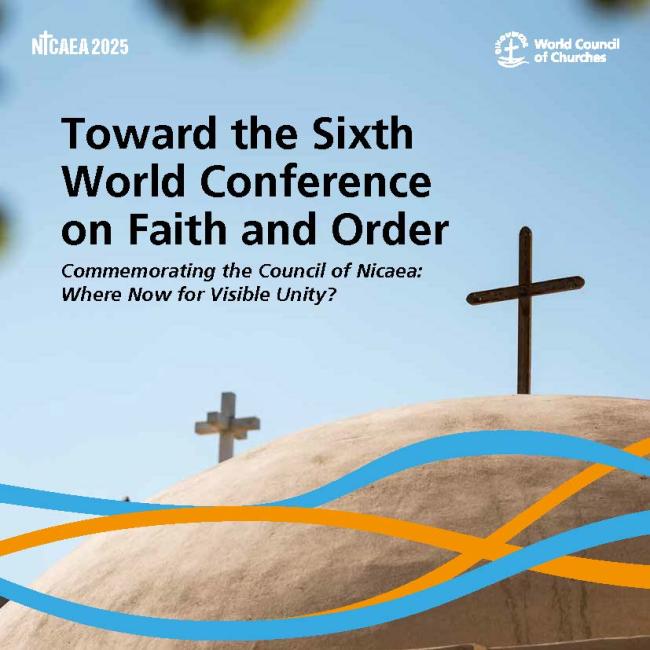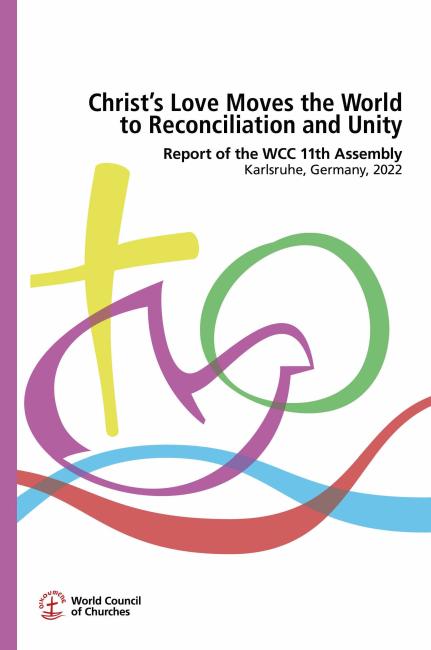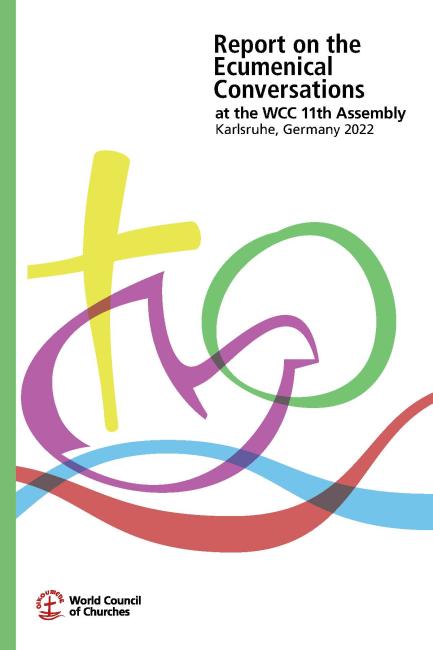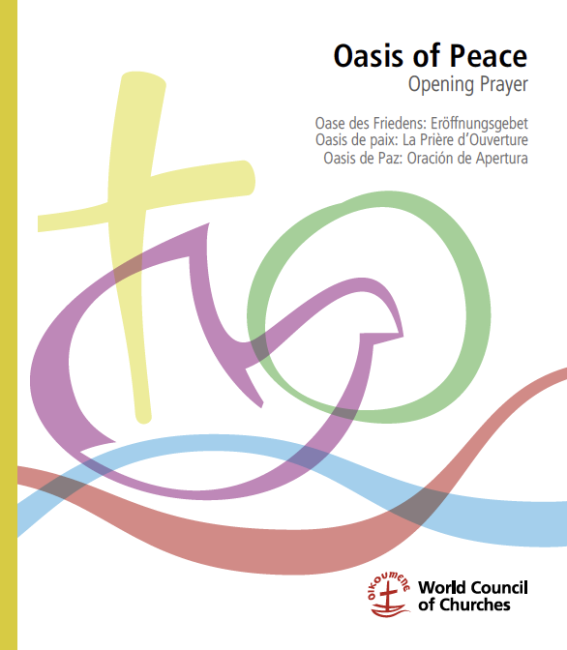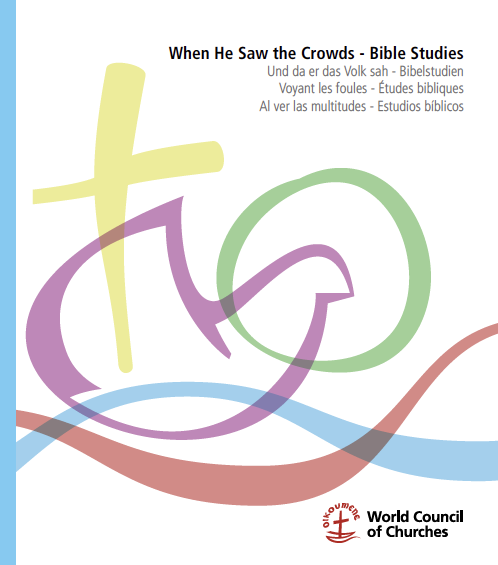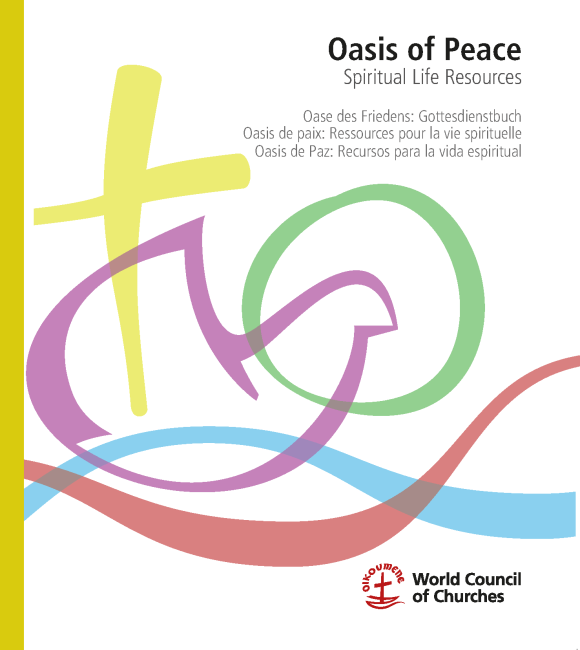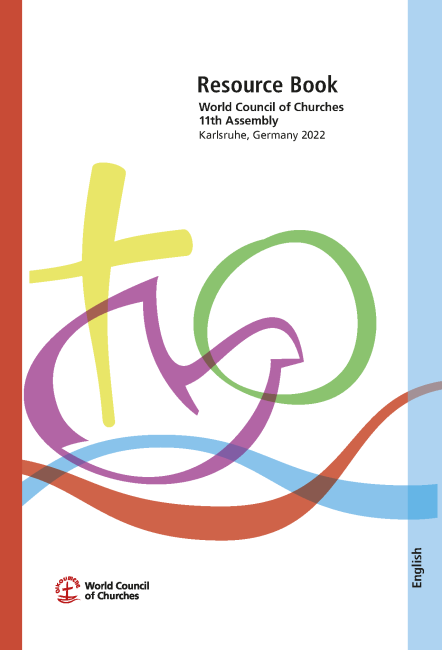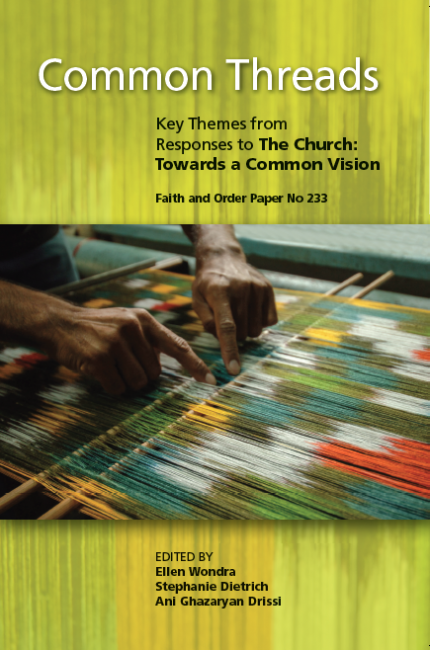Displaying 1 - 20 of 61
Executive Summary
23 March 2024
Toward the Sixth World Conference on Faith and Order
Commemorating the Council of Nicaea: Where Now for Visible Unity?
24 February 2024
Recommended Practices to Combat HIV-Related Stigma
A Guidebook for Local Faith Communities
05 October 2023
Faith Sector Implementation of the Global AIDS Strategy
05 October 2023
The Future of Mission Cooperation
The Living Legacy of the International Missionary Council
24 March 2023
HIV and AIDS Civil Society Networks and the Faith Sector
Lessons Learnt from Strategic Engagement in India, Dominican Republic, Indonesia, and Jamaica
31 January 2023
Towards a Global Vision of the Church Volume I
Explorations on Global Christianity and Ecclesiology, Faith and Order Paper 234
14 November 2022
Oasis of Peace Opening Prayer
30 August 2022
A Hundred Years of Mission Cooperation
The Impact of the International Missionary Council 1921-2021
21 August 2022
Together in the Mission of God
Jubilee Reflections on the International Missionary Council
21 August 2022
When He Saw the Crowds - Bible Studies
15 August 2022
Called to Transformation - Ecumenical Diakonia
09 June 2022
Common Threads
Key Themes from Responses to The Church: Towards a Common Vision. Faith and Order Paper No 233
25 February 2022
ZacTax Toolkit
24 November 2021

